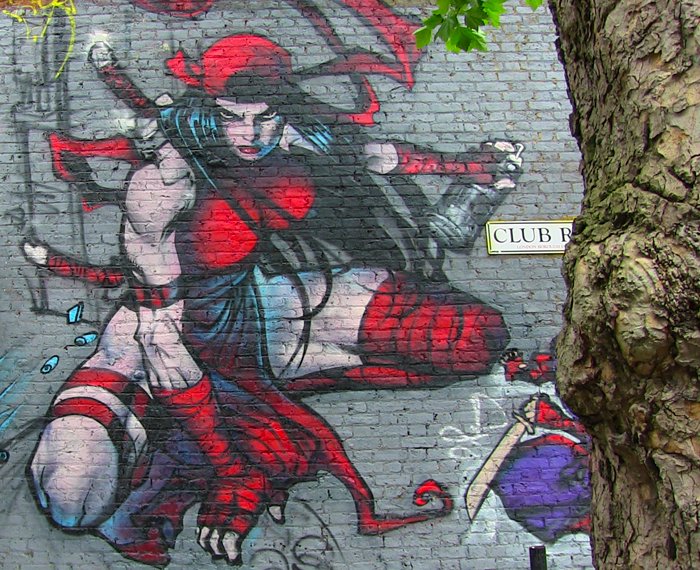“I have become one who blesses and say Yes; and I fought long for that and was a fighter that I might one day get my hands free to bless.”
Friedrich Nietzsche
Dear Reader, I practiced martial arts for several years (judo and thai-chi). As such I enjoy very much books about the philosophy of martial arts and how it can be applied to our daily life, which is the case of Daniele Bolelli’s book.
“On the warrior’s path” is a book about the path of the modern warrior. In other words, it explains how martial arts can be taken as a philosophical journey. Martial arts (including the ones that use weapons such as swords and arches) lost most of their importance as arts that prepared people for war. However, millions of people still practice many kinds of martial arts all over the world. By taking a closer look at martial arts we can understand various important issues, whether we practice them or not.
Daniele Bolelli is an Italian writer and martial artist who lives in Los Angeles. He is also a lecturer teaching in several universities like UCLA and others, and an author, writing for martial arts magazines. The author has a black belt in Kung Fu San Soo and practices several other martial arts like Thai Chi Chuan and Brazilian Jujitsu – fought professionally in mixed martial arts (MMA).
The author writes with wit about deep and complex topics by quoting several different sources like Friedrich Nietzsche, Tom Robbins, Thomas Paine, Heraclitus, Henry David Thoreau and Lao Tzu.
I believe the first four chapters to be the most interesting in the book. In these, essentially, Daniele Bolelli shows his view on how the warrior path relates with our daily life. Even though the second part of the book is also interesting, it approaches questions more directly related to martial arts such as warrior rites and its representation in movies. Daniele Bolelli displays in his book a very interesting view on humankind. As an example, he suggests that “most human problems have their origin in a bad relationship with the body”. However, the central argument of the book, from my point of view, is simply a very powerful idea, that is not very original: “once we find out that we are free to choose, we can become designers of our lives”
The key chapter of the book is the fourth. In it Bolelli describes the relationship between the princess and the warrior, which is a metaphor for the ying and the yang, the feminine and masculine in the martial arts. Ideally, Daniele Bolelli suggests, “solving problems before they form is the way of the warrior”. The author insists that someone who walks the way of the warrior isn´t a soldier – he thinks for himself and his own boss. Someone who walks the way of the warrior should try to obtain a good balance between his or her yang (masculine) energy and ying (feminine) energy.
A warrior is the master of war. He should be capable to defend himself from the problems that appear in his way by refusing to give away his power. Sometimes “assertiveness, strength, bravery, and indomitable will” are really necessary to defend ourselves from the “dragons” that appear in our lives. But the warrior should be also an artist of peace. In a way, if war is simple – its objectives are clear (surviving and winning) peace isn´t so simple. The warrior also needs “sensibility, creativity, sweetness, a capacity to dream and gain joy from every facet of existence”. He needs to know how to fight and also how to live. It doesn´t make a lot of sense to win a “war” if one won’t be able to enjoy later on the “fruits” of peace.
I agree with the author. We should be masters of “war” in our lives and refuse to give away our power. We need “strength” so we don’t become “slaves” of the circumstances of our lives. But we should also make an effort to be “artists of life” by enjoying the present and creating beauty in our lives. Even though I consider the book to be very interesting, I think it has some flaws. Probably its major flaw is the length. From my point of view, sometimes Daniele Bolelli writes too many words. Other flaw is that the book indicates only a few practical ways to apply the view on the warrior´s path as seen by the author.
Ivo Dias de Sousa is a Portuguese writer born in Mozambique. Ivo is also a Professor at Universidade Aberta, Portugal, giving courses on information management. Currently, Ivo is interested in using his experience on information management to construct applications (see http://windit-app.com/ ) for smartphones, in collaboration with others. Ivo holds a Master in Statistics and Information Management (Universidade Nova de Lisboa) and a Ph.D. in Information Management (Universidade Aberta). Amongst his main interests are information management, psychology of luck and literature.












